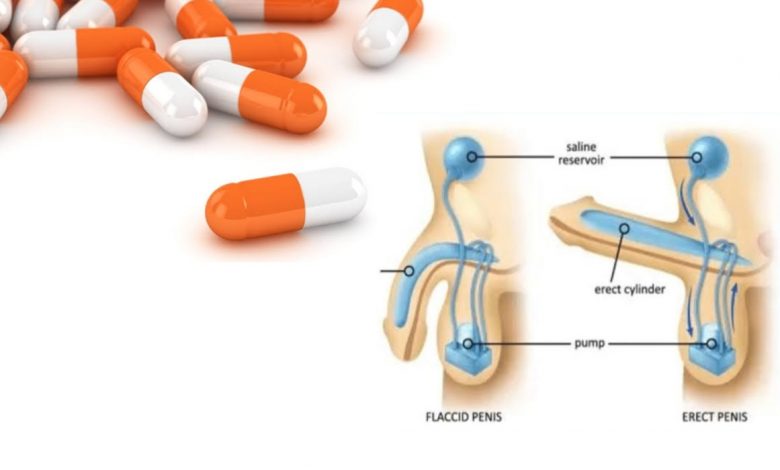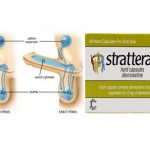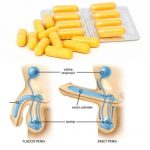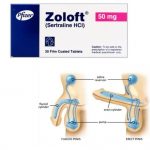Can Adderall Cause Permanent Erectile Dysfunction?

Erectile dysfunction, also known as impotence is defined as difficulty getting and keeping an erection. It can be an embarrassing thing to talk about. It’s been reported that more than half of men between the ages of 40 and 70 experience some form of ED. So take comfort in knowing that you are not alone.
One reason erectile dysfunction becomes more common with age is that older men are more likely to be on some kind of medication. In fact, an estimated 25% of all ED is a side effect of drugs, according to the Harvard Special Health Report Erectile Dysfunction: How medication, lifestyle changes, and other therapies can help you conquer this vexing problem.
The most common types of medication that are linked to ED include antidepressants, anti-ulcer drugs, tranquilizers, and diuretics—which help the body get rid of sodium and water, and are used to treat heart failure, liver failure, and certain kidney disorders.
What is Adderall?
Adderall is the brand name for the combination of dextroamphetamine and amphetamine. It’s a prescription stimulant used primarily to treat ADHD or narcolepsy (daytime sleepiness).
The medication alters certain naturally-occurring chemicals in your brain by enhancing the effects of neurotransmitters like dopamine, norepinephrine, and, to a lesser degree, serotonin.
Adderall comes in either an immediate-release tablet or a time-release capsule (Adderall XR). It can interfere with sleep, so it should be taken in the morning. If you’re prescribed Adderall, a doctor will most likely start you off with a low dose to make sure you can tolerate it. Then, the dose can be slowly increased.
Before taking Adderall, talk with a doctor about any preexisting physical or mental health problems you have and list all other prescription and over-the-counter medications you take. Certain other medications may interact with Adderall and cause serious side effects.
These medications can include:
• certain anti-depression medications
• certain blood pressure medications
• seizure medications
• blood thinners
• decongestants
• stomach acid medications, including antacids and proton pump inhibitors (PPIs)
How does Adderall work?
For people with ADHD, Adderall may improve focus and attention while reducing hyperactivity and impulsive behavior. It works by increasing the amount of dopamine and norepinephrine in the brain.
Dopamine helps the brain reinforce rewarding behaviors. Norepinephrine affects your heart rate, blood vessels, blood pressure, and breathing. It can also affect your blood sugar.
It may have similar effects on people who do not have ADHD. Medications for ADHD like Adderall may be more effective when used along with behavioral therapy or a comprehensive treatment plan that may include psychological, educational, or social therapies.
Can Adderall cause erectile dysfunction?
Yes, studies have reported that about 4% of men taking Adderall report experiencing sexual side effects including erectile dysfunction, ejaculatory dysfunction, loss of libido, and anorgasmia. These are listed among the long-term side effects of Adderall in males.
Some people even report that their sex drive or libido increases significantly (Adderall horniness) when they first start taking the medication, only for it to drop afterward. Adderall does not make you last longer in bed.
Why does Adderall cause erectile dysfunction?
Adderall is implicated in erectile dysfunction because the medication causes the narrowing of the blood vessels in certain areas of the body which results in increased blood pressure and other cardiovascular effects, but it can also affect the vital blood flow to the penis, making it more difficult to experience an erection when sexually aroused. Such sexual dysfunction is one of the major reasons for discontinuing Adderall.
Is Adderall erectile dysfunction permanent?
No, Adderall-induced erectile dysfunction is not permanent, there are many different options for treating this, however, DO NOT STOP your medication without working with your primary care provider.
Generally, your doctor may recommend Adderall ED solutions that can enhance sexual performance while allowing a person to continue taking potentially life-saving or life-extending medications. Often, such treatments begin with making changes to a person’s routine. These include:
- adopting healthful eating habits
- avoiding using recreational drugs
- increasing daily exercise
- limiting or avoiding alcohol
- maintaining a healthful weight
- quitting smoking
- sleeping well
How long ED from Adderall last depends on many factors. If Adderall produces more pronounced sexual side effects at a particular time of the day, for example, within a few hours of taking it. Then your doctor may ask you to try scheduling sexual activity for the time when side effects are least bothersome or take Adderall at a different time.
If these interventions fail, your doctor may switch you from Adderall to another medication that is less likely to cause side effects like erectile dysfunction. There’s no firm rule about how or when to switch, so it’s important to follow your doctor’s guidance.
Adderall side effects
Adderall can cause mild or serious side effects. The following list contains some of the key side effects that may occur while taking Adderall. This list doesn’t include all possible side effects.
The more common side effects of Adderall can include:
- Anxiety
- Constipation
- Dizziness
- Dry mouth
- Headache
- Lack of appetite
- Nausea
- Stomach pain
- Trouble sleeping
- Weight loss
These side effects may go away within a few days or a couple of weeks. If they’re more severe or don’t go away, talk with your doctor or pharmacist.
Serious side effects
Call your doctor right away if you have serious side effects. Call 911 if your symptoms feel life-threatening or if you think you’re having a medical emergency.
Serious side effects and their symptoms can include the following:
- Agitated or aggressive behavior
- Blurred vision
- Depression
- Hallucinations
- Heart problems, including high blood pressure, rapid heartbeat, heart attack, and stroke
- Impaired or delusional thinking
- Irritability
- Muscle breakdown called rhabdomyolysis
- Severe allergic reaction
Adderall may cause other side effects. Call your doctor if you have any unusual problems while taking this medication.
If you experience a serious side effect, you or your doctor may send a report to the Food and Drug Administration’s (FDA) MedWatch Adverse Event Reporting program online (http://www.fda.gov/Safety/MedWatch) or by phone (1-800-332-1088).





